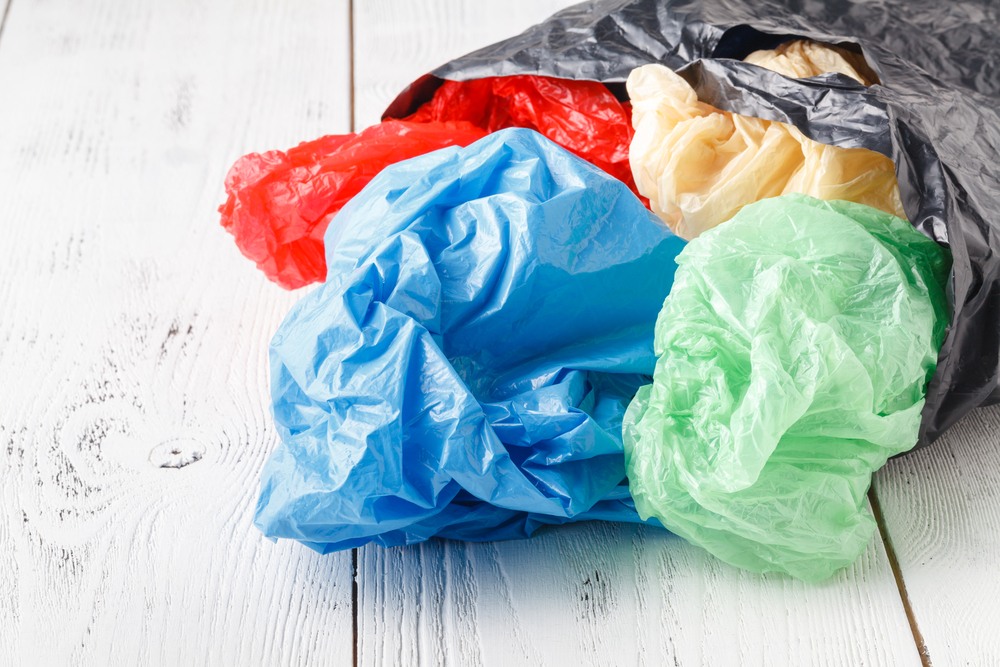
Look around you – your home, your kitchen, your wardrobe. Step outside and walk a few metres and you’re bound to find something made of plastic along the way.
The truth is, plastic is everywhere.
It’s in everything – the clothes you wear, water bottles, product packaging, toys, pipes, lightweight plastic shopping bags and more. Plastic is omnipresent, and it seems that not a place on Earth is free from plastics.
Aside from clogging landfills, tons of plastic waste have reached waterways and oceans, killing marine life before heading back to human food and water systems as microplastics and microfibres.
Of the many plastic products that abound on Earth, lightweight plastic shopping bags seem to be among the most pernicious – not only because it takes 20 to 1,000 years for them to degrade, but because people use so many every day.
In fact, lightweight plastic bag use worldwide reaches 5 trillion per year or 160,000 plastic bags per second.
Plastic Bag Use in Australia
With Australia being the second-biggest producer of waste in the world per capita at 690 kilograms per person, per year, it’s not surprising to know that the country has an ongoing plastic bag waste problem, amongst other things.
In 2017, for example, it was found that about 35% of the rubbish produced in the country was plastic, of 16.6% comprised of plastic bags.
In Western Australia alone, over 670 million plastic bags are used every year, with around 7 million disposed of as environmental litter. Also, only less than 2% of lightweight plastic bags get recycled.
This is why Australia’s ban on plastic bags – which began with the ban on lightweight plastic shopping bags on 1 July 2018 – is so significant.
Australia’s support for the international movement led to the Western Australian government introducing a single-use plastic bag ban and similar legislation across other Australian state governments and jurisdictions.
Why Are Plastic Bags Bad For the Environment?
Lightweight plastic bags are difficult to recycle and require specialised equipment to break down and remake into new products, so most recycling facilities are unable or refuse to recycle them.
Moreover, since plastic bags are used to carry everything – from fresh fish, meat and poultry to liquids and other items, single-use plastic bags are considered major contaminants in the recycling process. Getting rid of them or sorting them so they can be removed from the recycling stream would cost municipalities millions of dollars per year.
Also, according to the Commonwealth Scientific and Industrial Research Organisation (CSIRO), flexible plastics such as plastic bags ‘cause the greatest number of deaths of all marine animals. These include whales, dolphins, sea turtles and seals.
Australia’s Plastic Bag Ban By State
The Australian plastic bag ban was confirmed as early as 1 July 2018. However, the various Australian government jurisdictions and states had their own timetables, with some already introducing plastic bag bans long before the country made a commitment to join the international plastic bag ban in 2018.
Western Australia (WA)
Although Western Australia’s plastic bag ban was strictly enforced only in January 2019, there were two previous unsuccessful attempts in Fremantle (2013 and 2015) to introduce a citywide plastic bag ban.
In July 2018, the Western Australian state government introduced a plastic bag ban covering lightweight plastic bags that were 35 microns or less. The government gave retailers six months to comply with the plastic bag ban and dispose of their existing supplies.
Australian Capital Territory (ACT)
The ACT introduced a plastic bag ban as early as November 2011 and is second only to South Australia in passing a law banning plastic bags (plastic bags less than 35 microns thick). However, this bag ban exempts degradable bags as well as fruit and vegetable plastic shopping bags.
New South Wales (NSW)
NSW has yet to introduce a plastic bag ban this 2021, although the need for it was recognised as early as 2017.
Northern Territory (NT)
The plastic bag ban has been in effect in the Northern Territory since September 2011. However, the plastic bag ban has a few exemptions including degradable/compostable bags and heavier bags.
Queensland (QLD)
The announcement that the Queensland government was to ban lightweight plastic bags happened as early as 2016, although the ban only took effect on 1 July 2018.
South Australia (SA)
South Australia introduced their Plastic Shopping Bags (Waste Avoidance) legislation on 13 November 2008, with the official effectivity set on 4 May 2009. This makes SA the first state government to implement a ban o lightweight plastic bags, except for fruit and vegetable bags and heavier plastic bags.
Tasmania (TAS)
Coles Bay in TAS was the first-ever Australian town to introduce a total ban on non-biodegradable lightweight plastic bags. The rest of the state caught up on 1 November 2013 with their statewide move to ban plastic bags.
Victoria (VIC)
The plastic bag ban was introduced by the Victorian government on 1 November 2019, although discussions regarding this bag ban started as early as mid-2017.
How You Can Help the Environment
Thanks to the nationwide commitment to the global effort to ban and phase out single-use plastics and Western Australia’s decision to follow suit, plastic bags across Perth are no longer as pertinent of a problem.
However, plastic waste still remains an enormous concern for everyone due to the severe impact it has on the environment.
If you want to help protect the environment, there are several things you can do:
- Practise the three R’s – reduce, reuse and recycle.
- Buy fresh, local food products.
- Avoid purchasing food that’s packaged in plastic and Styrofoam.
- Conserve energy and water; go solar if you can.
- Switch to power-saving LED light bulbs.
- If you have an outdoor pool, use a pool cover to reduce water evaporation.
- Use recycled paper products whenever feasible.
- Walk, bike, carpool or take public transportation.
- Plant and protect trees.
There’s more you can do, but the above activities are a great way to get involved in environmental protection.
For more information, contact the Allmetro Bins team on (08) 9201 1118 or by sending an enquiry online.

Your Local Perth Skip Bin Hire
& Waste Disposal Company
Allmetro Bins have been providing skip bin hire and waste management services to residential and commercial customers throughout the Perth metropolitan area for more than a decade.
With our extensive range of skip bin sizes, we can quickly and efficiently remove all kinds of waste, including residential waste, commercial waste, construction and demolition waste, green waste, mixed waste, and even the disposal of asbestos!
To organise a Perth skip bin, or for more information on our skip bin hire services, book online today or call us on (08) 9201 1118!
Sizes and Prices
Affordable skip bins of all sizes to suit your residential and commercial needs!






